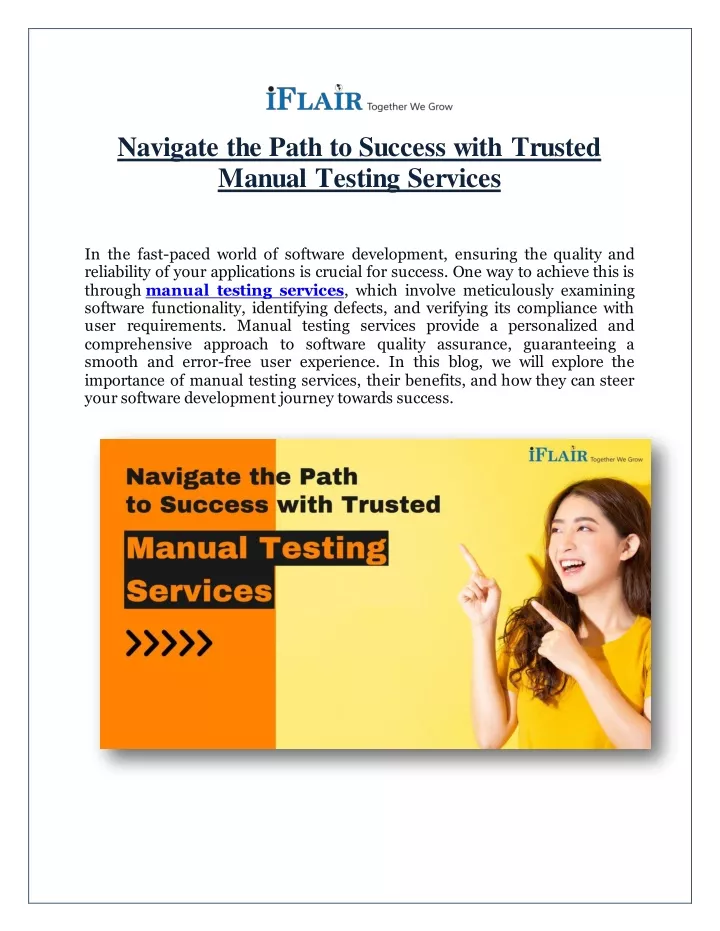Navigating the Path to Success: A Comprehensive Guide to Map Testing in MA
Related Articles: Navigating the Path to Success: A Comprehensive Guide to Map Testing in MA
Introduction
With great pleasure, we will explore the intriguing topic related to Navigating the Path to Success: A Comprehensive Guide to Map Testing in MA. Let’s weave interesting information and offer fresh perspectives to the readers.
Table of Content
Navigating the Path to Success: A Comprehensive Guide to Map Testing in MA

In the ever-evolving landscape of digital marketing, optimizing user experience is paramount. One crucial aspect of this optimization lies in ensuring that your website’s presence on search engines is accurate and readily accessible. This is where map testing plays a pivotal role.
Map testing, also known as local SEO testing, involves verifying and refining the accuracy of your business information across various online platforms, including Google My Business (GMB), Apple Maps, Yelp, and more. This meticulous process ensures that potential customers can easily find your business, enhancing visibility and driving traffic to your website.
Why is Map Testing Crucial?
In today’s digital age, consumers rely heavily on online searches to discover local businesses. A well-optimized online presence is essential for attracting new customers and fostering brand loyalty. Here’s why map testing is crucial for businesses operating in MA:
- Increased Visibility: Accurate business information on map platforms ensures that your business appears prominently in local searches. This elevates your visibility, making it easier for potential customers to find you.
- Enhanced User Experience: Consistent and accurate information across platforms creates a seamless user experience. Customers can easily find your address, contact details, and operating hours, leading to a smoother interaction and greater satisfaction.
- Boosted Brand Credibility: A well-maintained online presence reflects professionalism and attention to detail. Accurate business information builds trust and credibility in the eyes of potential customers.
- Improved Local SEO Ranking: Map testing contributes significantly to your local SEO ranking. Consistent information across platforms signals to search engines that your business is legitimate and trustworthy, improving your ranking in local search results.
- Increased Website Traffic: Accurate map listings drive traffic to your website. Customers who find your business through map searches are more likely to visit your website for further information or to make a purchase.
- Enhanced Customer Engagement: By ensuring that your business information is readily available, you encourage customers to engage with your brand. They can easily contact you, view your services, and even book appointments, leading to increased customer interaction.
The Importance of Map Testing in MA
MA is a bustling hub of businesses, making it even more critical to optimize your online presence. The competitive landscape necessitates a strong local SEO strategy, and map testing is an integral part of this strategy.
- High Density of Businesses: MA boasts a high density of businesses across various industries. This competitive environment makes it crucial to stand out from the crowd and ensure that your business is easily discoverable.
- Tech-Savvy Consumers: MA residents are known for their tech-savviness and reliance on online searches. This emphasizes the need for accurate and consistent information across online platforms to cater to their digital habits.
- Growing Tourism Industry: MA attracts a significant number of tourists each year. Accurate map listings are essential for reaching these visitors and guiding them to local businesses, attractions, and services.
How to Conduct Effective Map Testing in MA
The process of map testing involves several steps:
- Identify Your Target Platforms: Determine the platforms where your business is most likely to be found by potential customers. This could include Google My Business, Apple Maps, Yelp, Bing Maps, and more.
- Gather Your Business Information: Compile all necessary information, including your business name, address, phone number, website URL, operating hours, and any other relevant details.
- Perform a Thorough Audit: Check your business information on each platform and compare it to your official records. Look for inconsistencies, outdated information, or missing details.
- Update and Verify: Correct any errors and update your business information on all platforms. Ensure that the information is consistent across all listings.
- Monitor and Maintain: Regularly review your listings for accuracy and make necessary updates as needed. Monitor customer reviews and respond promptly to any feedback.
Tips for Effective Map Testing
- Use Consistent Information: Maintain the same name, address, and phone number (NAP) across all platforms to avoid confusing customers and search engines.
- Utilize Keywords: Include relevant keywords in your business description and category listings to improve your visibility in local searches.
- Add Photos and Videos: Engage potential customers with high-quality images and videos that showcase your business and services.
- Encourage Customer Reviews: Positive reviews build trust and credibility, boosting your ranking and attracting new customers.
- Respond to Reviews: Address customer concerns and respond promptly to reviews, demonstrating your commitment to customer satisfaction.
- Track Your Results: Monitor your website traffic, customer engagement, and local search ranking to assess the effectiveness of your map testing efforts.
FAQs about Map Testing in MA
Q: What are the benefits of map testing for businesses in MA?
A: Map testing increases visibility, enhances user experience, boosts brand credibility, improves local SEO ranking, drives website traffic, and enhances customer engagement.
Q: How often should I conduct map testing?
A: It is recommended to conduct map testing at least quarterly to ensure that your information is up-to-date and accurate. However, frequent updates may be necessary depending on business changes or updates to online platforms.
Q: What are some common errors to look for during map testing?
A: Common errors include incorrect business names, addresses, phone numbers, website URLs, operating hours, and inconsistent information across platforms.
Q: How can I ensure the accuracy of my business information?
A: Cross-reference your information with your official records, consult your website, and contact relevant platforms to verify information.
Q: What are some resources for map testing?
A: Google My Business, Apple Maps, Yelp, Bing Maps, and other local search platforms offer tools and resources for managing and verifying business information.
Conclusion:
Map testing is an essential aspect of local SEO strategy for businesses in MA. By investing time and effort in this process, you can ensure that your business is easily discoverable, enhance customer experience, and ultimately drive growth and success. Remember, accurate and consistent online presence is crucial for navigating the competitive landscape and reaching your target audience in the digital age.








Closure
Thus, we hope this article has provided valuable insights into Navigating the Path to Success: A Comprehensive Guide to Map Testing in MA. We appreciate your attention to our article. See you in our next article!
